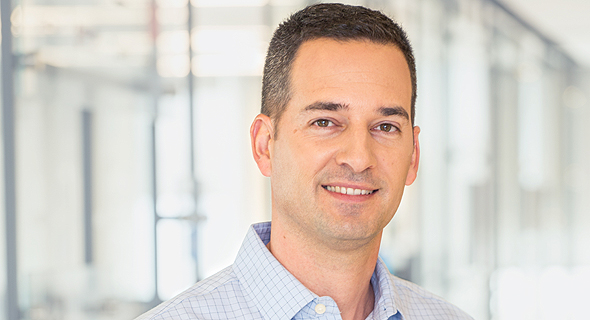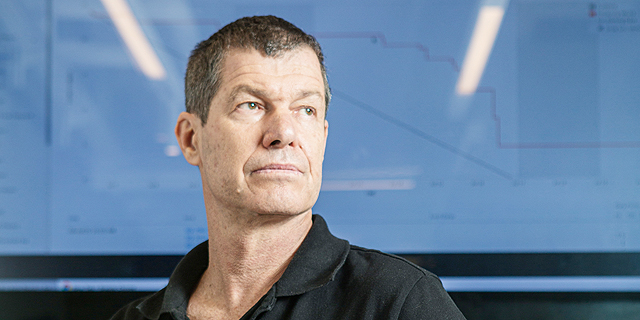
Unit 81: The elite military unit that caused a big bang in the Israeli tech scene
Veterans of the IDF’s secretive technological division are the entrepreneurs driving major changes across the industry
This article first appeared on January 8, 2021 and is being reshared as part of CTech's Top 10 stories of 2021.
Every year, several months before their enlistment into the Israeli military, a group of young men, as well as some young women, enroll in an intensive intelligence course dedicated to learning offensive cyber techniques. Afterwards, they go on to join some of the IDF’s various intelligence and technological units. The best of them are selected to join a special unit, that was once referred to generically as the Intelligence Corp’s Technological Unit, but in recent years, after the military censor approved for it to be called by its official name, has been exposed as Unit 81. Once in the unit, they meet the officers that manage its array of departments and teams, mostly graduates of the Talpiot program that combines university studies with service in the prestigious technological unit. They serve in the unit for several years, often staying on beyond the three years mandatory service, and then depart to civilian life and begin to launch companies. Lots of companies.
A mapping of the industry carried out by Calcalist found that soldiers and officers who served in Unit 81 between 2003-2010 have, in the decade since, gone on to found a massive number of startups: roughly 100 veterans of the unit have founded 50 companies so far — an entrepreneurship ratio that even graduates of MIT can’t compete with. These are not just any companies either: the startups founded by Unit 81 vets have raised no less than $4 billion, with their accumulated valuations, prior to the latest funding rounds, surpassing $10 billion, with some of them reporting impressive earnings and some already boasting successful exits.Looking back, it would not be an exaggeration to say that the unit’s veterans have changed the face of the Israeli tech scene over the past decade, or at the very least determined the direction it is headed in: young companies with high aspirations that focus on providing solutions to existing needs, generate income at a relatively early stage, and are in no rush to be sold .
VALUATION COMPANY USE CASE
$1.4 Billion - Innoviz (2016) - Autonomous vehicle technology
$1.3 Billion - Forte (2013) - Preventing online fraud
$1.1 Billion - Armis Security (2015) - Cybersecurity
$1 Billion - e-Global (2013) - Fintech
$1Billion - Bluevine (2013) - Fintech
$700 Million - Guardicore (2013) - Cybersecurity
$600 Million - Hailo (2018) - Artificial Intelligence
$500 Million - WekaIO (2013) - Data storage
$500 Milion - Sight Diagnostics (2011) - Blood test analysis
$500 Million - Wiz (2020) - Cloud security
Unit 81 veterans were always considered the vanguard of the local startup industry, but in recent years we have been witnessing an explosion. Censorship laws don’t permit disclosing how many soldiers and officers were discharged from the unit around 2010, but Unit 81 veterans told Calcalist that most of those who completed their service went on to found a company. Most of them skip university studies, often having studied at that level during highschool or their military service, or due to the knowledge they accumulated during their time at the unit, realized that they had no need for a degree.
The model that has been established in the industry over the past decade is nearly uniform and is based on the advantages of having emerged from a common technological hub: retired officers launch a company and recruit their former underlings to join the founding team. They, in turn, leave the company to found new ones of their own, recruiting the more recently discharged, and the cycle repeats itself. Companies of ex Unit 81 veterans grow like branches on a tree, each one giving birth to the next.
The case of Asaf Rapaport serves as an example. In 2012, Rapaport (37) was one of the founders of cybersecurity company Adallom, which only three years later was sold to Microsoft for $320 million. Just recently he, along with the same partners, founded cloud-protections company Wiz, which raised a phenomenal sum of $100 million in its first financing round. As the first employee of Adollam, Rapaport recruited Yevgeny Dibrov, a fellow Unit 81 veteran. After the company was sold, Dibrov founded his own cyber company Armis Security and recruited other veterans to the team. Dibrov later sold Armis to Insight Partners for $1.1 billion.
Another of Adollam’s initial team, Liran Hason, founded Aporia, yet another intriguing cyber company that is currently still in stealth mode. Itay Kirshenbaum, from the founding team of Armis, founded Medigate, a cyber company specializing in the healthcare world in 2017. WekalO and Vanti Analytics are two other companies founded by Unit 81 veterans, who in turn had worked at XIV and Innoviz, companies founded by fellow veterans.
It is not rare for companies to be founded by a team made up entirely of former Unit 81 members. “A team that has worked together before is a substantial force multiplier,” Rapaport said. “You can’t find that in Silicon Valley, neither in terms of the pool you can draw from, nor in terms of knowledge and experience. Even Google and Microsoft don’t have a concentration of talent, like Unit 81 has. After you leave the unit you realize that up until now you did the wildest things in your life together with the most talented people and you want to extend that into civilian life.”
VALUATION COMPANY USE CASE
$350 Million - TravelPerk (2015) - Business Travel Organizer Software
$320 Million - Adallom (2012) - Cybersecurity (Sold to Microsoft)
$300 Million - OwnBackup (2015) - Cloud security
$300 Million - Medigate (2017) - Medical Cyber
$300 Million - Fireblocks (2018) - Cyber
$250 Million - Fabric (2015) - Fintech
$200 Million - Mixtiles (2016) - App for printing photos
$200 Million - CloudEndure (2012) - Cloud technologies (Sold to Amazon)
$200 Million - Perimeter 81 (2018) - Cybersecurity
$200 Million - Epsagon (2017) - Cloud technologies
You Invest in My Company and I’ll Invest in Yours
The unit’s networking doesn’t end with founding joint companies and mentoring newly discharged comrades before their big breaks. The veterans don’t only recruit talent from their younger cohorts, they also raise capital from their predecessors, in a sort of internal angel circuit.
The most prominent investor in the circuit is Zohar Zisapel, a Unit 81 veteran who is among the owners of RAD Data Communications, and was the initial investor in quite a few of the companies founded by other veterans and even serves as chairman of the board of some of them, Hailo, for example. The younger vets also invest in each other’s companies — Rapaport invested in Dibrov’s Armis and Dibrov paid him back by investing in Wiz as well as other Unit 81-spinout companies (Aporia, Epsagon, and Fireblocks).
A more institutional investment route also exists. Tal Slobodkin (42) a graduate of Talpiot (another prestigious IDF braintrust), who left the army in 2006, is the chairman of the unit’s veteran association, known as Amit, and has ready access to all the entrepreneurs that emerge from the unit. As the managing partner of VC fund StageOne he often invests in veterans’ companies, such as NeuroBlade, Theator, Varada, and Epsagon.
The IDF Built a School for Cyber and Located All the Right People
How did it come to be that an entire sub-industry of the Israeli tech sector grew around Unit 81 veterans? Primarily, the veterans say, because it is a fertile habitat. “The IDF identified the importance and necessity of the cyber sector as far back as the 90s,” Slobodkin said. “Back then the understanding emerged that there was a problem with training suitable personnel and as a result new sorting procedures were put in place, high quality personnel was recruited and a specialized curriculum was developed. The unit practically invented cyber education and recruited people who were very skilled at programming and computer science, some of them got a taste for cyber in highschool as amateur hackers. Suddenly there was a home for these young people and the military discovered these phenomenal people who only required some makeup courses in proper coding, methodologies, etc… There were 18-year-old geniuses taking part in these courses who were entirely self taught and possessed more knowledge than the instructors.“
VALUATION COMPANY USE CASE
$100 Million - Cymulate (2016) - Cybersecurity
$100 Million - NeuroBlade (2016) - AI
$100 Million - Wi-Charge (2010) - Remote charging for cell phones
$100 Million - D-Fend (2016) Drone interception system
$70 Million - TailorMed (2016) - Fintech for health sector
$50 Million - Brandtotal (2016) - Advertising tools for digital
$50 Million - SCADAfence (2014) - Cybersecurity
$50 Million - Varada (2016) - Big data
$50 Million - Bionic (2019) - Enterprise software
$50 Million - Buildots (2018) - Machine vision for the construction industry
Being a genius is more important than possessing knowledge about computers, said Brig. Gen. (Ret.) Avner Paz Tzuk (57) who commanded the unit between 2007-2010 and for the past decade has served as COO of SQream, which develops tools for big-data analysis. “When the soldiers are recruited the emphasis isn’t necessarily on their knowledge of computers or electronics. They’re looking for people who can think outside the box, but can also collaborate with others who have similar traits,” he explained. “Cooperation is vital since sophisticated networks combine several disciplines and require people with knowledge of mechanics, electronics, and physics. In the exams we tailored, we didn’t ask candidates to write code, instead we gave them a complex problem to solve in order to examine how they came up with a solution. In cases where we do give them code, it is only in a language that they’re not familiar with.” According to Paz Tzuk, out of the pool of all eligible recruits in a given year, ten thousand meet the initial criteria, several thousands reach the screening process, and only several hundred end up being integrated in Unit 81 and other similar units.
When the young people arrive at Unit 81, “what’s important is linking them to the existing knowledge centers that have been in the unit for years. It gives rise to things that each group on its own couldn't arrive at independently. It is deep tech, where knowledge and experience are extremely important. In such a way recruits come to meet Talpiot graduates who don’t necessarily come from a background in computers or cyber, but rather from the worlds of mathematics and physics. Rapaport, who served between 2006 to 2010, was one such person.
“The unit had members who grew up with a keyboard in one hand and their pacifier in the other, but I personally wasn’t interested in computers prior to joining the army and didn’t study computers in high school. I studied math and physics, starting my BA in Mathematics when I was 16,” Rapaport said.
Linking the various disciplines enabled Unit 81 to essentially build the cradle of modern Israeli cyber capabilities. “When I arrived at the unit in 1999 I was the seventh person in the cyber team. When I left in 2006 I commanded over 50 soldiers and there were several hundred in the cyber division. We were awarded the first Israel Defense Prize for the field,” Slobodkin said. “Since 2004 we started reaping the dividends from this process.”
Those dividends are felt by the entire Israeli tech sector — this IDF ‘generator’ powers the Israeli cyber industry, which includes more than 500 companies. Of course, it wasn’t all because of Unit 81, and changes in the technological world played a big part. “Over the past decade, the stars have aligned,” said Paz Tzuk. “Something took place in the world outside the unit and the military. Big money that was looking for innovative technological solutions grew at an exponential pace and converged with mature graduates. Those who are still in the service look and see veterans doing well and don’t seek to become salaried developers, but instead want to blaze new paths, because that was the drive that was instilled in them. Most of them retire from the army in their late twenties, possessing experience in managing teams of several dozens of people and developing projects from start to finish. That simply doesn’t exist anywhere else.”
Pavel Gurvich (38) served in Unit 81 between 2001 and 2013 and immediately after his discharge founded Guardicore, one of Israel’s most successful cybersecurity companies together with fellow veteran Ariel Zeitlin. Even before the company had its first product it received investments from Ariel Maislos, a unit veteran and from Ehud Barak, who they knew as Minister of Defense.
“In the third cohort of the course we were 17 people, all of whom could study independently and delve deep into a certain issue. Even during the course, we were encouraged not to ask the person next to us how they solved a problem, but instead to deal with the challenge alone,” Gurvich recalled, vaguely adding that he was involved in data protection even as a highschool student. He also experienced the unit as the foremost incubator for the local cyber scene. “All the big and special things were happening in Unit 81,” he said. “Unit 8200 (another military intelligence unit, often characterized as Israel’s NSA) was better at PR and it has reached the stage where I no longer correct investors, especially foreign ones, who ask if I served there. I just tell them I did.”
The faint note of condescension over the giant military intelligence unit is present in conversations with most other veterans of the smaller unit, including some who served in senior roles in both units. They see 8200 as being more common and less sophisticated (aside from several enclaves) and therefore it was no surprise that it first won the Defense of Israel Prize only in 1997.
VALUATION COMPANY USE CASE
$50 Million - Granulate (2015) - Artificial Intelligence
$50 Million - Cybellum (2016) - Cybersecurity
$30 Million - Vanti Analytic (2019) - Analytics systems for electronics manufacturers
$30 Million - Cylus (2017) - Cyber for trains
$30 Million - Donde Search (2013) - Fashion search engine
$20 Million - Rookout (2017) - Automation for dev processes
$20 Million - Qlika (2012) - E-Commerce for tourism
$20 Million - Theator (2018) - AI for surgeons
$20 Million - Hi Auto (2019) - Voice command
40. $20 Million - Cnvrg.io (2016) - Artificial Intelligence
41. $20 Million - Lynx.MD (2019)- Artificial Intelligence
Freedom, Disarray, and Award-winning Developments
The Defense of Israel Prize is a big deal at Unit 81, a sort of stamp of quality for their products and contribution to the country’s security, even though the unit doesn’t really function in military fashion. The unit operates out of a facility that doesn’t look like a military base and most of the soldiers don’t wear uniforms or are required to salute outranking officers. When veterans are asked about the atmosphere in the unit they talk about a sense of “freedom” and “disarray,” noting it as part of the unit’s success.
“We walked around out of uniform and no one could tell if you were an officer. It was all about your knowledge and charisma,” says Dibrov (33), who served in the unit between 2007 and 2010. “That’s also a reason I didn’t want to go to officers’ training, I would have missed out on all the amazing things that were being done at the time and earned us the Defense of Israel Prize.”
Unit 81 is the unit that has won the prize the most number of times, and naturally, what it won for can’t be reported. 37 such prizes rest on the unit’s shelves and a large number of startups that are on the list are made up of people who were on, or even led, the teams that earned the prizes. One of the most distinguished winners was Guy Sela, who together with other veterans founded SolarEdge, which manufactures sensors for solar panels and is traded on Nasdaq at a valuation of $16.5 billion. Sela died of cancer in 2019. Another well-known prize recipient was Rami Feig, who went on to found Unispectral and Hailo and drowned three years ago.
Alongside the decidedly non-militaristic atmosphere in the unit, the language the veterans describe their service with is more similar to the tech scene jargon, referring to commanders as team leaders and to being discharged, simply as leaving. No one there was counting down the days of service as is so common in other units. For them it was just like a workplace.
Crazy Work Hours and an Absence of Girls
And it was a workplace mostly for men. “Due to the requirement to remain after mandatory service, there were substantially fewer women than men,” Rapaport said. “Adding a year or two onto the standard three doesn’t double the service time of men like it does for women (in Israel men are required to serve in the army for three years while women only for two). Of course, there is also the matter of the pool of candidates that the military draws from,” he said, glazing over the deep problem of discrepancies in education and technological tendencies that exist between men and women. “The girls that did serve with us were superior to the boys. If a girl was able to manage the tough course, she’s stronger than most of the people around her.”
One of the prominent female veterans is Sarah Levy (38) who after her military stint, joined the founding team of Sight Diagnostics, which developed a rapid blood test solution based on AI technology. The company raised $70 million in August, bringing its total to $125 million at a valuation nearing $500 million. Levy is a graduate of Talpiot, served under Feig in Unit 81 and headed its data team. “I divide my service into two parts, before giving birth to my eldest daughter, when I was 26, and after she was born,” she said. “Before giving birth, I worked for 14 hours a day, working weekends, and all in a mad rush. After my daughter was born I was appointed head of the cyber division, but managed to get the same things done, in fewer hours, between 07:30 and 16:00, and it was an incredible life lesson. Nowadays at the company, it’s important for me not to fall into that chaotic lifestyle and explain it to other women in the company too.”
Long work hours were par for the course for life at Unit 81. “People living close to the base would constantly see the lights on. That’s because there was always someone burning the midnight oil to complete an urgent project,” Rapaport said.
So what is it they toil away there for 14 hours a day and into the night on weekends, with a passion for extended service? Unit 81 is essentially a contractor for the intelligence community. They are the “clients” who present the teams with various requests, which according to the people we spoke to, all seem impossible at the start. It’s that, which provides the common explanation for the veteran’s success in civilian life: they grew up in an environment in which everything begins with a clear problem, unlike civilian tech geeks who come up with brilliant ideas, but fail because they don’t necessarily solve a real problem, or because they solve it in a way that’s too expensive or cumbersome.
All of the people that were interviewed repeat, almost suspiciously, the unit’s deeply ingrained motto: “Making the impossible possible.” “What we essentially do each time is establish a startup within the military,” said Dibrov. “We solve a problem with a limited budget and at all hours of the day. It’s very much like working at a startup, where sure, you raise money, but you’re not Cisco or Microsoft and you do have to beat them with your product.” And he adds another thing: unlike in the civilian market, at Unit 81, you can’t make mistakes. “The QA at the unit is done with the understanding that people’s lives are at stake. You have one opportunity and can’t fail. At Armis I equate it to things like installing our system at IBM or AT&T, it’s like a military operation carried out at a specific time and the product can’t work at just 90% capacity.”
“For people on the outside the motto may sound like a slogan, but it's true — if you truly comprehend the problem and the limitations, you can solve anything. Later, in the business world, it changes the way you look at tasks, what it means to ‘complete a mission’ and the importance of providing a precise solution to the requirements and testing to make sure it works consistently,” Levy added. “The unit doesn’t only work with software, but rather builds the entire system start to finish, with the result being not just a technology, but a product.”
That explains part of the attraction for investors. “Venture capital knows that the little details count and the products that are built by the veterans are designed out of the understanding that they will not be able to be maintained later on, or at least not often,” said Paz Tzuk.
And there’s another element that provides Unit 81 with an advantage in the real world: competition. Competition between the unit and other intelligence agencies and internally between the various teams, who sometimes are given the same tasks, knowing that only the most precise and dependable solution will win out. So that alongside the complicated missions, the sense of duty, and the human capital, it is competition that sparks creativity and passion. “Ever since I was discharged and throughout my entire career, I haven’t done anything nearly as interesting as I did at the unit,” said Slobodkin, who also worked as an investment banker at Goldman Sachs and on Cisco’s investment team. “It’s like developing and building an Intel microprocessor while in the army.”
Such experiences at such a young age shape the personalities of the unit’s members and their career paths in civilian life. In recent years their companies’ big bang is also shaping the Israeli tech sector.





